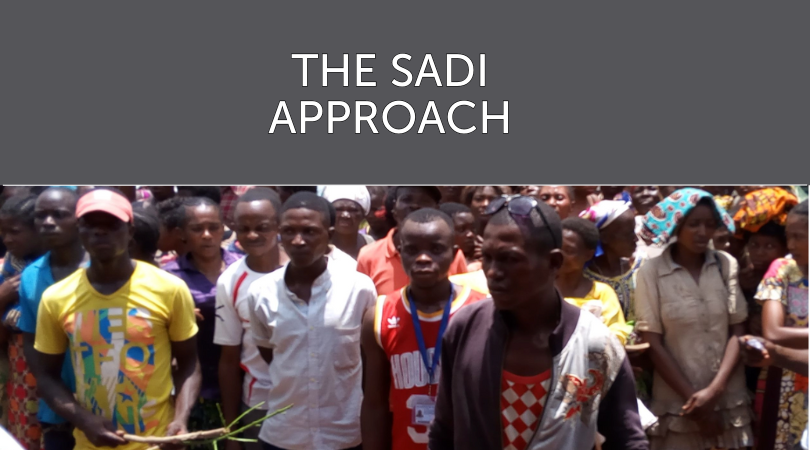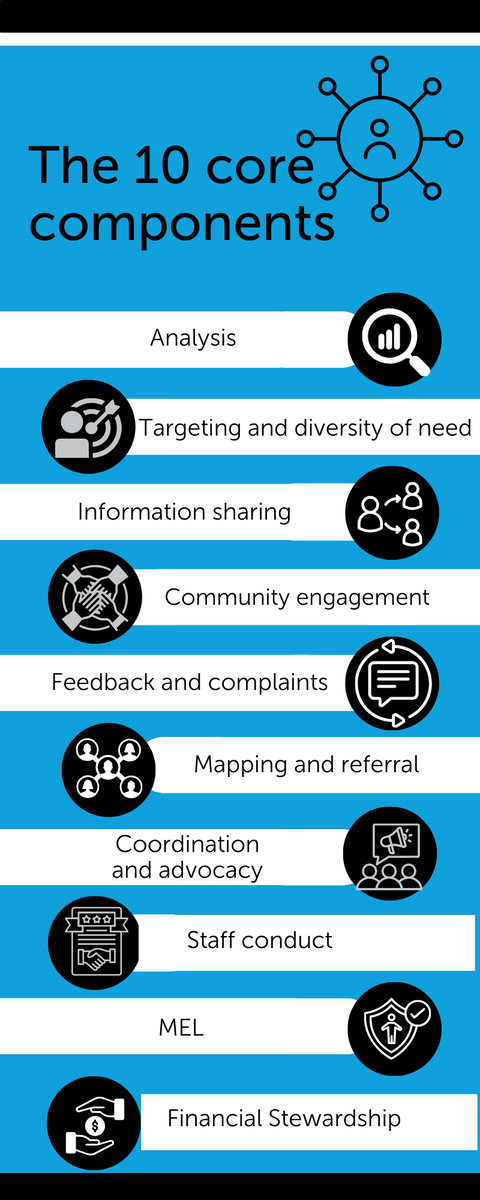CAFOD Launches The SADI Approach After CHS Audit
CAFOD Launches SADI Approach to Enhance Accountability and Inclusivity After CHS Audit
December 2023

“The audit process has been transformative for CAFOD, resulting in positive changes. These include strengthening organisational processes and developing approaches that enable us to fulfil the CHS commitments in a way that aligns with our partnership approaches and local leadership commitments.”
Vicky Shearer, Organisational Performance & Evidencing Manager at CAFOD, December 2023
For the past 20 years, the Catholic Agency for Overseas Development (CAFOD) has been working to develop innovative approaches to meet the needs of the people and communities it serves. However, in 2018, the organisation faced some issues that were highlighted by the HQAI CHS mid-term audit findings. To address these issues, CAFOD developed and launched its Safe, Accessible, Dignified, and Inclusive (SADI) approach and, as a result, were able to quickly regain and retain their certification.
SADI is not about what an organisation does but how it does it. It is an approach, a framework and a toolkit that puts the safety, accessibility, dignity and inclusion of people and communities at the heart of projects. It is one part of a unified system of programme quality and due diligence that is applied at both organisational and project levels. Project and partner-level approaches are mutually supportive and reinforcing.
CAFOD is committed to working through local partners, believing those who best know their local context and will be there for the years to come are crucial for creating a sustainable response network in a world where emergencies are lasting longer, becoming more frequent, and funding is limited. With this in mind, SADI has been designed to complement partner approaches to quality and plays a key part in CAFOD's ambitions to support partners in their efforts to strengthen their capacity and build sustainable organisations.
Key Features of SADI
- Inclusive community participation: Individuals are included in all program design, implementation, and monitoring stages. This ensures that programs are tailored to the community's specific needs and that everyone's voice is heard.
- Intersectionality: SADI recognises the different ways that people are affected by events and how these factors can intersect to create additional challenges. For example, a woman with a disability may face more barriers to accessing humanitarian assistance than a man with a disability. SADI considers these intersectional factors to ensure that programs are inclusive and meet the needs of all people.
- Accountability: SADI upholds commitments to accountability. This means that programs are designed and implemented in a way that is responsive to the community's needs and feedback. It also means that programs are transparent, and people can report concerns.

SADI in Action
SADI has been implemented in various contexts worldwide, including the Democratic Republic of Congo (DRC). In the DRC, CAFOD worked with a local partner organisation to establish an inclusive feedback and complaints mechanism as part of an initiative to engage the community in the Ebola response. The feedback and complaints mechanism allowed people to provide feedback on the Ebola response and report any concerns. This helped to ensure that the response was accountable to the community and that everyone had a way to have their voice heard.
SADI has also been used to improve humanitarian assistance targeting in the DRC. CAFOD partner organisations initiated using the Washington Group questions to enhance the quality of SADD data. This data was then used to develop a tool that facilitates a consistent targeting and data collection approach. The tool combines social vulnerability criteria with food consumption scores and material vulnerability, enabling programs to capture intersectionality better. The approach integrated 'data-driven' targeting with consultations with diverse groups at each stage, including representatives of women's associations, associations of people with disabilities, and older adults.
The Role of Independent Professional Auditing
The example set by CAFOD demonstrates the importance of including independent professional auditing, such as CHS audits. This not only helps audited organisations identify areas for improvement, but also plays a crucial role in amplifying the voices and addressing the needs of vulnerable and at-risk communities.
Category